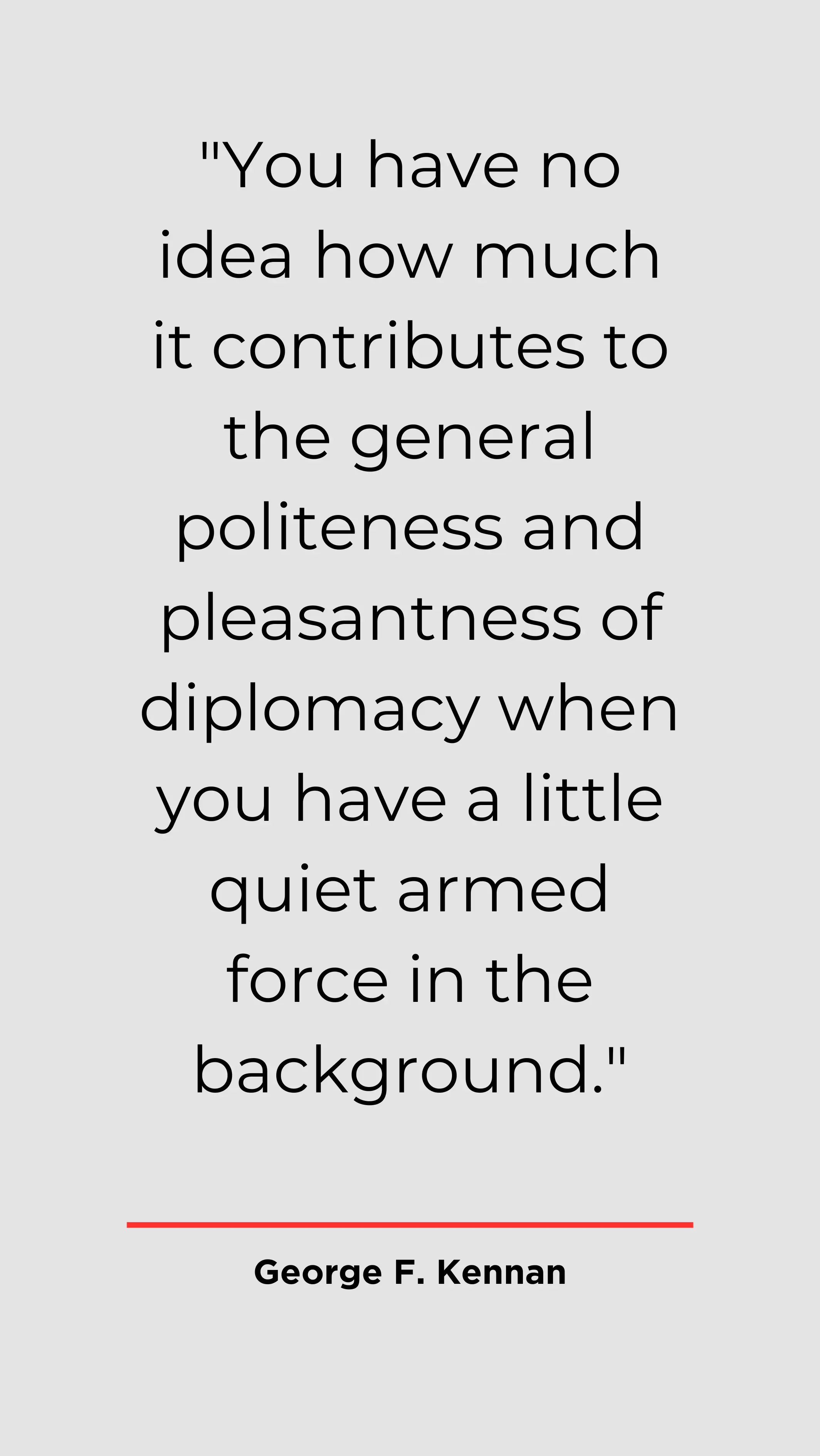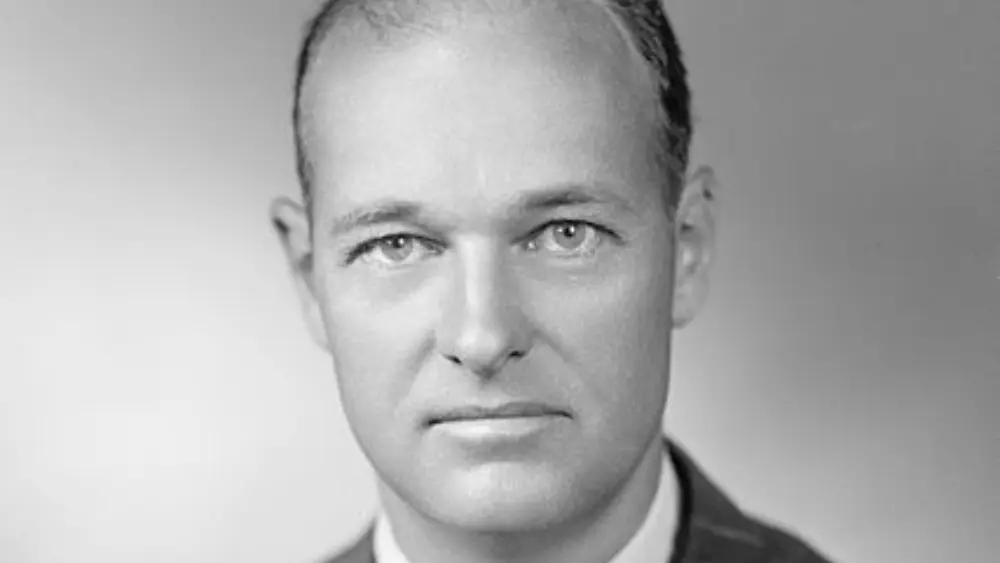George F. Kennan, a diplomat, historian, and political thinker, is renowned for his pivotal role in shaping American foreign policy during the Cold War. Born on February 16, 1904, in Milwaukee, Wisconsin, Kennan’s intellectual prowess and deep understanding of international relations earned him a place of prominence in the corridors of power.
Early Life and Education
George Kennan’s journey through life was characterized by an insatiable intellectual curiosity that set the stage for his remarkable career in diplomacy and foreign policy. From a young age, he displayed a voracious appetite for knowledge and a deep interest in understanding the world. This intellectual curiosity would become a defining trait throughout his life. His educational path led him to Princeton University, where he embarked on a transformative academic journey. At Princeton, Kennan’s passion for history and international affairs blossomed, shaping his intellectual foundation and laying the groundwork for the influential role he would play in shaping America’s foreign policy in the years to come.
Kennan’s time at Princeton was instrumental in honing his analytical and critical thinking skills, which would prove invaluable in his later diplomatic and scholarly pursuits. His educational experiences not only enriched his understanding of global affairs but also instilled in him a profound sense of duty to contribute to the betterment of the world through his expertise and insights. The seeds of George Kennan’s exceptional career were sown during his formative years, as he cultivated the intellectual and academic foundations that would enable him to become one of the most influential figures in American diplomatic history.
George F. Kennan: Foreign Service and Early Assignments
George F. Kennan’s entry into the United States Foreign Service marked the beginning of a distinguished diplomatic career. His work would leave a lasting impact on the course of American foreign policy. From his early days in the service, Kennan demonstrated a keen intellect and an acute understanding of international affairs. His assignments took him to various strategic locations, including Europe, the Soviet Union, and East Asia, where he played a crucial role in shaping U.S. diplomatic efforts during pivotal moments in history.
Kennan’s diplomatic postings provided him with a front-row seat to the complex geopolitical landscape of the 20th century. His experiences in these critical regions not only allowed him to witness firsthand the challenges and opportunities of American diplomacy but also contributed to his deep expertise and nuanced understanding of global affairs. These early assignments laid the foundation for the profound impact he would have on U.S. foreign policy, particularly with his influential doctrine on containment during the Cold War, cementing his status as a preeminent figure in American diplomacy.
The Long Telegram
In a pivotal moment in his diplomatic career, George F. Kennan, while stationed at the U.S. Embassy in Moscow in 1946, penned a groundbreaking telegram that would profoundly shape the trajectory of American foreign policy. Known as the “Long Telegram,” this communication was far more than just a diplomatic dispatch; it was a comprehensive assessment of Soviet intentions and behavior, meticulously detailing the emerging threat posed by the Soviet Union to the United States and its allies. Kennan’s telegram was a clarion call to Washington, urging the U.S. government to adopt a containment strategy in response to the Soviet Union’s expansionist ambitions, a strategy that would ultimately become the cornerstone of U.S. foreign policy during the Cold War.
The Long Telegram’s impact was profound, as it provided a strategic blueprint for how the United States should navigate the complex and hostile relationship with the Soviet Union. Kennan’s keen insights, astute analysis, and strategic foresight laid the groundwork for the United States to confront the challenges of the Cold War era effectively. This seminal document catapulted Kennan to the forefront of American foreign policy and solidified his reputation as one of the most influential diplomats and strategists of the 20th century.
George F. Kennan: The “X” Article
George F. Kennan’s influence on American foreign policy reached its zenith with the publication of his anonymously authored article, “The Sources of Soviet Conduct” (commonly referred to as the “X” article) in Foreign Affairs in 1947. This seminal piece not only illuminated Kennan’s strategic vision but also provided the intellectual bedrock upon which the policy of containment was built. In this groundbreaking article, Kennan expounded upon his assessment of Soviet intentions and the imperative of containing Soviet expansionism. His eloquent and incisive analysis struck a chord with policymakers and the public alike, crystallizing the notion that the Soviet Union’s aggressive behavior needed to be countered through a strategy of containment rather than confrontation.
“The X Article” was nothing short of a blueprint for American foreign policy during the early years of the Cold War. Kennan’s articulation of the containment doctrine set the course for how the United States would approach its global rivalry with the Soviet Union, shaping not only the policies of that era but also the broader contours of U.S. foreign relations for decades to come. Kennan’s intellectual prowess and strategic acumen, as demonstrated in this seminal article, solidified his legacy as a preeminent architect of Cold War diplomacy and a profound influence on the trajectory of American international relations.
Architect of Containment
George F. Kennan’s role as the chief architect of the containment strategy stands as one of the most influential contributions to American foreign policy in the 20th century. His steadfast advocacy for containment as the core strategy to counter Soviet expansionism had a lasting influence on U.S. diplomacy during the Cold War. Kennan’s strategic vision, articulated in his influential “X” article and the Long Telegram, provided the intellectual framework for American policymakers to confront the challenges posed by the Soviet Union without resorting to direct military confrontation.
Kennan’s containment doctrine was more than just a policy; it was a guiding principle that shaped the United States’ global strategy for over four decades. His nuanced understanding of the Soviet Union’s motivations and vulnerabilities allowed him to craft a strategy that not only preserved U.S. security but also contributed to the eventual dissolution of the Soviet bloc. George F. Kennan’s legacy as the architect of containment remains a testament to the enduring impact of his ideas and his profound influence on the course of Cold War diplomacy.
George F. Kennan: Diplomatic Service and Ambassadorships
George F. Kennan’s diplomatic career was punctuated by two particularly notable ambassadorships, one to the Soviet Union and another to Yugoslavia. His appointment as U.S. Ambassador to the Soviet Union during the early years of the Cold War was a testament to his unparalleled expertise in Soviet affairs. In this critical role, Kennan navigated the treacherous waters of U.S.-Soviet relations, providing valuable insights and counsel to American policymakers during a period of heightened tension. His ambassadorship to Yugoslavia further underscored his diplomatic prowess, as he played a crucial role in shaping relations with a key Balkan nation, which had charted an independent course within the Eastern Bloc. Kennan’s astute diplomacy and deep understanding of Soviet and Eastern European dynamics made him an invaluable asset in these pivotal diplomatic posts.
Kennan’s service as an ambassador was characterized by his intellectual rigor, strategic thinking, and unwavering commitment to advancing U.S. interests while navigating the complexities of international relations. His diplomatic legacy not only enhanced America’s standing on the global stage but also contributed to the eventual thawing of Cold War tensions. Kennan’s career as a diplomat, marked by his ambassadorships to critical regions, solidified his reputation as a masterful statesman who could deftly navigate the intricacies of international politics and diplomacy.
Later Years and Scholarship
In the twilight of his illustrious career, George F. Kennan remained a towering figure in international relations, leaving a lasting legacy through his writings and scholarship. During his later years, Kennan continued to contribute his intellectual prowess to the study of global politics, offering insights and perspectives that resonated deeply within the field. His books and essays, characterized by their depth, clarity, and thoughtfulness, have endured as foundational texts in the study of international relations.
Kennan’s commitment to scholarship extended well beyond his time as a diplomat, and his writings continue to shape the way scholars, policymakers, and students understand the complexities of the international landscape. His enduring influence serves as a testament to his lasting impact on the world of diplomacy and his dedication to the pursuit of knowledge and understanding in the realm of global affairs. In his later years, Kennan demonstrated that his intellectual vigor remained undiminished, leaving an invaluable legacy that continues to guide and inform the field of international relations to this day.
George F. Kennan: Critique of American Foreign Policy
Throughout his career, George F. Kennan remained a steadfast advocate for the principles of political realism and containment, and he did not shy away from critiquing American foreign policy when he believed it strayed from these foundational tenets. Kennan’s commitment to a measured, pragmatic approach in international relations meant that he often raised his voice when he perceived deviations from the strategic wisdom of containment. His critiques were rooted in a deep understanding of global politics and the imperative of maintaining a coherent, long-term strategy to counter the Soviet Union during the Cold War.
Kennan’s willingness to speak truth to power and challenge prevailing policies reflected his unwavering dedication to the principles he had championed. His critiques, often delivered with eloquence and clarity, served as a vital check on the impulse for rash action in the realm of foreign affairs. Kennan’s legacy as a critic of American foreign policy remains a testament to his steadfast commitment to principles he deemed essential for safeguarding U.S. national interests and preserving global stability during a unruly era.

Legacy and Political Realism
George F. Kennan’s legacy is multifaceted and profound, encompassing his advocacy for political realism, his pivotal role in shaping the strategy of containment during the Cold War, and his enduring impact on American foreign policy. His dedication to political realism, grounded in a deep understanding of the complexities of international relations, remains a guiding principle in the field of diplomacy and global politics. Kennan’s strategic vision, outlined in his influential ‘X’ article, shaped the United States’ approach to its rivalry with the Soviet Union, leaving a lasting influence on the nation’s foreign policy.
Beyond his strategic acumen, Kennan’s ideas continue to shape the study of international relations, influencing generations of scholars, policymakers, and students. His writings, characterized by their intellectual rigor and clarity, provide a timeless framework for analyzing global affairs. In an ever-changing and complex world, Kennan’s insights into the principles of political realism offer valuable guidance for understanding the motivations of nations and navigating the challenges of international diplomacy. George F. Kennan’s enduring legacy is a testament to the lasting impact that rigorous analysis and principled leadership can have on the course of history and the practice of foreign policy.











This site is packed with a lot of useful information that you might find interesting.